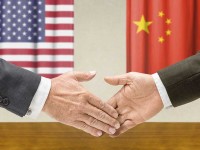
Mel Gurtov, Professor Emeritus of Political Science, Portland State University
Jun 20, 2016
Both the U.S. and China must bear responsibility for the ratcheting up of tension in the SCS and East China Sea. Washington clings to “freedom of navigation” as its principal reason for challenging Chinese claims even though unencumbered passage has not denied U.S. or any other country’s ships. Beijing should be consistent in recognizing that a legitimate dispute exists, just as it demands that Japan acknowledge a sovereignty dispute over the Diaoyutai/Senkaku islands.
Yi Fan, a Beijing-based political commentator
Jun 17, 2016
On Tuesday, senior ASEAN diplomats gathered in Yunnan for a special foreign ministers' meeting with their Chinese counterparts. The idea came from ASEAN countries, the turnout was impressive, and the retreat was deemed "timely and important". Amidst media speculation that the discussion pitted ASEAN against China, it will be useful to take a step back and examine the larger picture.
- The Tribunal’s Award in the “South China Sea Arbitration” Initiated by the Philippines Is Null and V
Chinese Society of International Law,
Jun 17, 2016
On 10 June 2016, the Chinese Society of International Law (CSIL) released a paper entitled The Tribunal’s Award in the “South China Sea Arbitration” Initiated by the Philippines Is Null and Void.
- How Convincing is the Decision that the Arbitral Tribunal Has Jurisdiction to Hear the Claims Brough
Chris Whomersley, Former Deputy Legal Adviser,the United Kingdom’s Foreign and Commonwealth Office
Jun 16, 2016
The Philippines has brought arbitration proceedings against China under the United Nations Convention on the Law of the Sea (UNCLOS) relating to the South China Sea, and the Tribunal has recently given its decision on whether it has jurisdiction over the claims made by the Philippines.

Wang Hanling, Director of National Center for Ocean Affairs and the Law of the Sea
Jun 15, 2016
China has been consulting and cooperating with ASEAN nations on the South China Sea issue following the “dual track” approach under corresponding regional and bilateral legal frameworks. The US, by maintaining a lonely existence beyond the international maritime legal order, will eventually isolate itself by attempting to isolate China.
Stewart Taggart, Founder & Principal, Grenatec
Jun 14, 2016
China’s six-month old investment bank, the AIIB, has been at pains to portray itself as a new multilateral economic institution governed by written rules and not merely a foreign economic policy puppet of China. However, problems may arise as the South China Sea tribunal ruling nears the official AIIB coming-out party.
Franz-Stefan Gady, Associate Editor, Diplomat
Jun 07, 2016
South China Sea tensions appear to reveal the innate character and intentions of both countries. However, small inkblots, just like small islands, can only explain so much when assessing the overall China-U.S. bilateral relationship. These inkblots imperil a more comprehensive scrutiny of the larger geo-political canvas of the ongoing 8th China-U.S. Strategic and Economic Dialogue.

Yin Chengde, Research Fellow, China Foundation for International Studies
Jun 07, 2016
China has no ambition to dominate Asia or the world, and Washington must resist misconstruing China’s development strategies and policies. It is imperative that the two countries dispel misgivings and strengthen communication, deepen understanding and mutual trust, in order to build a new type of major-country relations featuring non-confrontation, non-conflict and win-win cooperation.
Jun 03, 2016
China’s navy will send five ships to join a major US-hosted naval drill this summer, even as tension mounts between the world’s two largest economies over the South China Sea.
Franz-Stefan Gady, Associate Editor, Diplomat
Jun 03, 2016
President Barack Obama’s announcement that he will lift the decades-old embargo on the sale of military equipment to Vietnam raises the question of whether or not it will alter the military balance in the South China Sea. This outcome, Stefan-Gady argues, depends on both the effective training and the ability to successfully integrate new weapons systems within the existing military structures.
Back to Top

- China-US Focus builds trust and understanding between the U.S. and China through open dialogue among thought leaders.
- Our Offerings
- Topics
- Videos
- Podcasts
- Columnists
- Research Reports
- Focus Digest
- Stay Connected
-
Thanks for signing up!
- Get the latest stories from China-US Focus weekly.